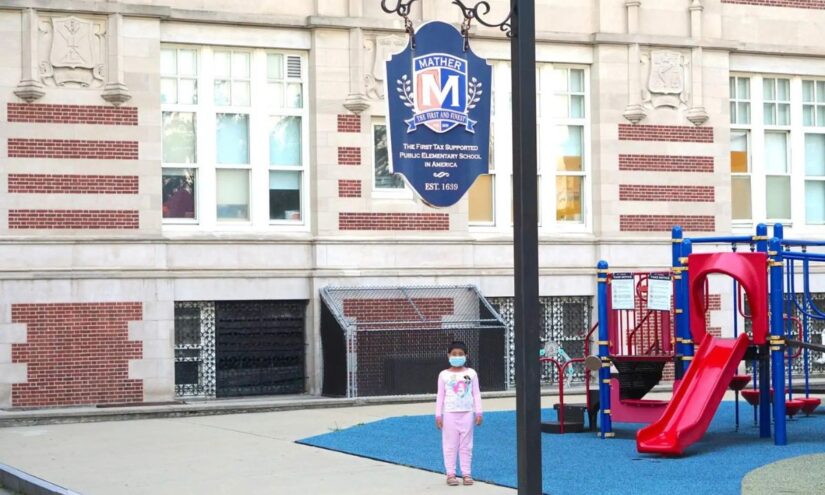During this summer, a team of students from MIT embarked on a journey to the sou …
Massachusetts Sees Widening Achievement Gap Following Pandemic
Jennifer Livingstone

According to a study spearheaded by scholars from Harvard and Stanford universities, the educational gap between poor and non-poor students in Massachusetts has widened significantly compared to other states analyzed. The report reveals that Massachusetts students experienced a loss of approximately two-thirds of a typical math learning year and two-fifths of a reading year between 2019 and 2022. Particularly concerning is that many of the state’s Gateway Cities, where a large proportion of economically disadvantaged students reside, witnessed declines equivalent to a full year of learning. Despite some districts showing improvements in student achievement after the shift to in-person learning in 2022, many Gateway Cities continued to face setbacks, exacerbating the pre-existing achievement gap.
Thomas Kane, the faculty director of Harvard’s Center for Education Policy Research and a co-author of the study, emphasized the detrimental impact of the widening gap on poor students. He stated, “No one in Massachusetts wants to leave poor kids footing the bill for the pandemic, but that is the path we are on.” The analysis shows that the disparity between poor and non-poor students in Massachusetts has increased by approximately half a grade since 2019. This trend underscores the disproportionate impact of the pandemic-related disruptions on lower-income students and highlights the uneven recovery process. Although five states witnessed a narrowing of the achievement gap between poor and non-poor students, Massachusetts continues to grapple with widening disparities.
In response to the concerning trend, Kane stressed the critical need for concerted efforts by districts and the state to address the growing achievement gap. Failing to mitigate these disparities could lead to long-term setbacks for poor students in Massachusetts, affecting their future earning potential and even increasing incarceration rates. The study emphasizes the urgency of prioritizing interventions to bridge the educational divide and support vulnerable student populations.
📷
The state of Massachusetts saw a divergence in academic performance trends among districts based on the economic background of students. While districts with a higher percentage of students from affluent households witnessed a rebound in achievement levels between 2022 and 2023, districts with significant populations of low-income students faced considerable challenges. For instance, in Longmeadow, a suburban area near Springfield, proficiency rates in reading for grades 3-8 improved from 61% in 2022 to 64% in 2023, and in math, rates rose from 58% to 65%.
Conversely, districts like Lynn, where a substantial proportion of students come from low-income families, experienced a decline in reading and math proficiency rates post-pandemic. Despite the return to in-person instruction, the district recorded a notable decrease in proficiency levels. In Lynn, the reading proficiency rate for grades 3-8 dropped from 38% in 2019 to 21% in 2022 and further declined to 19% in 2023. Similarly, math proficiency plummeted from 37% in 2019 to 15% in 2022, with a continued decrease to 14% in 2023. Mayor Jared Nicholson of Lynn expressed deep concern over the worsening trends and reiterated the district’s commitment to reversing learning loss and narrowing achievement gaps.
📷
The pandemic-induced educational challenges were further compounded by the increase in the population of student groups facing significant learning hurdles. In Lynn, the percentage of English language learners surged by 75% during the pandemic, reflecting a substantial demographic shift. Similarly, Framingham, with a sizable low-income student population, witnessed a sharp decline in academic performance post-pandemic, particularly in English and math proficiency levels. The district’s efforts to combat learning loss include deploying additional resources, such as math and literacy coaches, to support students in their academic recovery journey.
Education advocates and local leaders in Massachusetts emphasized the urgent need to address the widening gap between economically disadvantaged students and their more affluent counterparts. With federal relief funds amounting to over $2.8 billion allocated to schools in Massachusetts, districts are grappling with prioritizing initiatives to mitigate the learning setbacks caused by the pandemic. Lynn and Framingham are focusing a substantial portion of their federal aid on learning recovery efforts, such as afterschool tutoring, summer school programs, and targeted educational interventions during the school day to support student progress.
📷
The persistent challenge lies in ensuring equitable access to educational resources and tailored support for vulnerable student populations. Districts must intensify their efforts to address learning gaps and provide holistic support to students most impacted by the pandemic-related disruptions. Effective strategies, such as high-dose tutoring and targeted interventions, require increased investment and scalability to facilitate accelerated academic recovery. As districts navigate the final round of federal funding, there is a growing sense of urgency to redouble efforts in addressing learning loss and ensuring equitable educational outcomes for all students. Transparent communication with parents and stakeholders is essential to mobilize collective action towards closing the achievement gaps and fostering a more inclusive and equitable educational landscape in Massachusetts.

